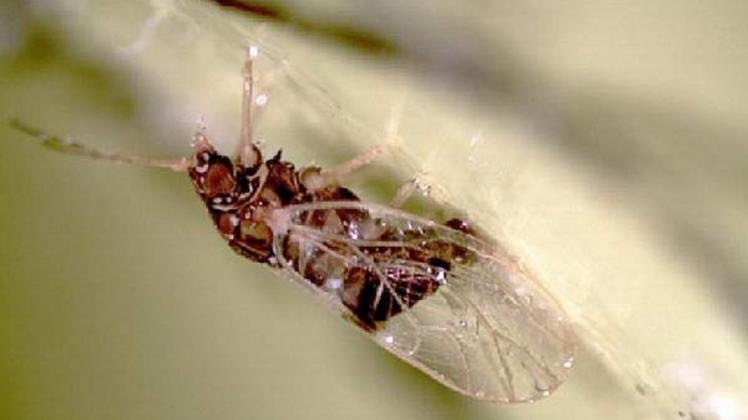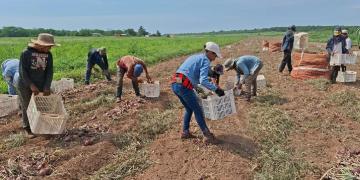EEUU: Growers respond to hot psyllid with spray programs
Idaho officials have reported thei first potato psyllid infected with Liberibacter bacterium that causes zebra chip from a commercial spud field.

BOISE — Spud growers throughout Idaho are preparing to implement costly insecticidal programs following the recent confirmation of a potato psyllid trapped in a commercial field harboring the bacterium that causes zebra chip disease.
Zebra chip, caused by the Liberibacter bacterium and spread by the tiny, winged insects, reduces yields and creates bands in tuber flesh that darken when fried.
University of Idaho Extension entomologist Erik Wenninger said the infected psyllid was trapped in an Ada County commercial field, on a sticky card collected during the last week of May. It marked the earliest confirmation of an infected psyllid in a commercial field, compared with July 6 last season and mid-June in 2012.
Psyllids found in Canyon, Gooding and Owyhee counties have tested negative. Idaho’s psyllid monitoring program detected its first psyllids this season on traps collected May 17. Also in May, three infected psyllids were found on Twin Falls County bittersweet nightshade plants, marking the first time that infected psyllids were ever found on the host plant, Wenninger said.
The disease first arrived in the Pacific Northwest in 2011, and a larger outbreak followed in 2012, when growers invested heavily in insecticides. Since then, zebra chip pressure has been light, and most growers have relaxed their spraying.
“We’ve been on a downward (zebra chip) trend for the last three years, and it looks like we’re on an upward trend this year,” Wenninger said.
This season’s field scouting program includes 13 intensive monitoring sites and 75 light monitoring sites. Wenninger is also conducting 21 different insecticidal treatment scenarios at the UI Kimberly Research & Extension Center, using mesh sleeves to trap infected psyllids on potato foliage. Insecticide trials have been inconclusive thus far, either due to inadequate natural disease pressure or excessive pressure from artificial inoculations. Jeff Miller, with Rupert-based Miller Research, has been invited to address growers about insecticidal programs for zebra chip during the June 22 Southern Idaho Potato Cooperative meeting at the Burley Inn. Miller said growers in the Magic Valley and Eastern Idaho may opt to wait until hot psyllids enter fields in their areas, though spraying is advisable in Western Idaho.
He said Abamectin, for example, is cheap and effective but shouldn’t be used more than twice in a season. Movento is effective but costly, and Midwestern growers warn Pyrethroid insecticides entice greater psyllid egg laying.
In Wilder, grower Doug Gross is starting a spraying program he estimates will cost $200 per acre, roughly $150 per acre more than he spent on insecticides last year.
“We think this is a game changer,” Gross said. “It takes a big chunk out of (our profits) and we’ve already been squeezed down to little or no margin with a pretty high-risk deal.”
Declo grower Mark Darrington expects to spend $170 per acre on his spraying program.
“I don’t believe it’s a secret that there’s a great spud crop coming, and of course people don’t want to put themselves in jeopardy by having a substandard crop,” Darrington said.
In Eastern Idaho, where zebra chip has posed little problem to date, grower Ritchey Toevs still plans to implement a $70 per acre spray program.
Fuente: http://www.capitalpress.com/Idaho/20150617/growers-respond-to-hot-psyllid-with-spray-programs




